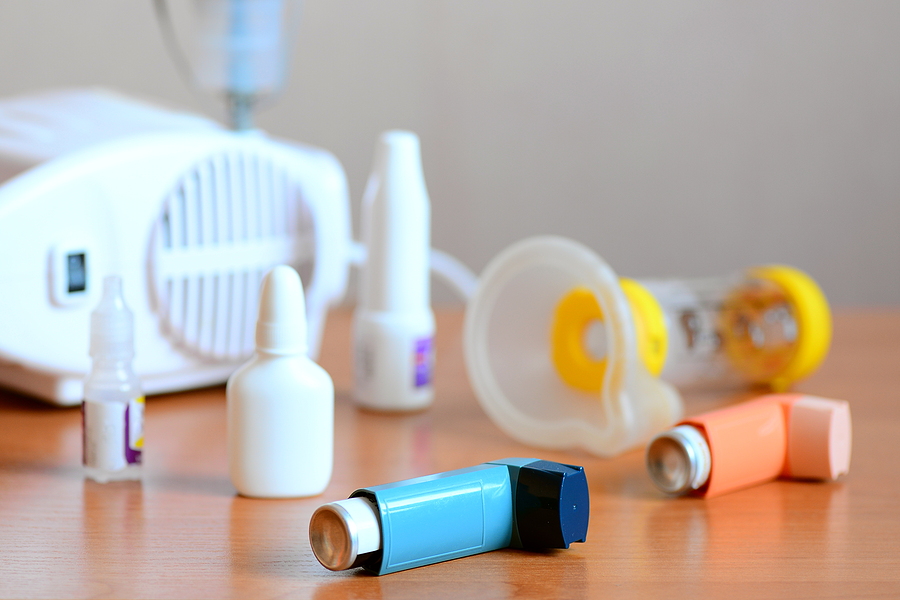Treating Asthma Symptoms During Fresno’s Hot Months
Posted By:SSG Admin Posted On:19-Jun-2024
Since June 1st, the daily highs have not dipped below the mid-80s. While nightly lows have been manageable some nights, the days have been brutal. The record highs of 114ºF (2022) and 115ºF (1905) haven’t been broken yet, but more heat is on the way. When you have asthma, this long-lasting heat impacts your health.
Hot air is enough to trigger the airways to shrink and make it harder to breathe. Higher levels of allergens and air pollution add to the issue. Hot air is often stagnant, which makes it easier for pollen, dust, mold, smoke residue, and other irritants to build up. As air quality worsens, asthma symptoms flare up.
Air Temperature Impedes Breathing in Some People
Frontiers in Medicine released a medical study on the role of sensory nerves in the airway. The temperature of airway tissue can trigger inflammation that shrinks the airway and makes it harder for asthmatics to breathe.
The outdoor heat alone is all it takes for your asthma to become harder to manage. One study found extreme weather, which includes extreme heat, increases the risk of asthma symptoms by 95%.
This is why it’s recommended that people with asthma stay inside when it’s hot. Turn on the AC and take it easy. Sometimes, that’s not possible. Here are our tips for taking care of yourself when the heat just doesn’t seem to want to ease.
Avoid Triggers
Make it a point to check the air quality each day. If you have to go outside, even when just walking to your car, office, store, school, or house, put on an N95 mask if the air quality is bad. Airnow.gov is a recommended source for finding out the current pollutants. Ozone is one to watch during a heatwave.
Pollen is another problem. With pollen counts higher than usual, it can add to the problem. Weather.com and Pollen.com are two of many sites that provide pollen counts for the area. Check those, too. In June, Juniper, Olive, and Sagebrush pollen counts increase. Take any allergy medications recommended by your allergy doctor. If you don’t have one, why not make an appointment and be proactive about avoiding allergy-related asthma attacks?
The heat alone can be a trigger. Staying cool makes all the difference. Whether you stay inside in AC or sit in a pool to cool off, make sure you are taking steps to lower the impact of Fresno’s brutal heat.
Be Practical When It Comes to Staying Cool
Use common sense and avoid being outside in the hottest hours, which are usually 10 a.m. to 4 p.m. If you have to be outside, keep a damp towel around your neck or one of the rechargeable fans that go around your neck. A dampened T-shirt also helps keep you cooler.
Don’t engage in strenuous activities when it’s hot outside. Exercise triggers asthma. If you insist on going for a walk, do it in the early morning or after dinner when it’s cooler outside. It’s better to walk on a treadmill or walk laps around your house than risk your health outside. Take any recommended medications before you are active, and bring your inhaler just in case.
Dehydration worsens asthma. Drink plenty of water. Avoid soda, caffeinated beverages, and sugary drinks. Stick to water, seltzer, or unsweetened decaf iced tea if you cannot bear another glass of water.
You can also eat water-rich foods like grapes, oranges, melon cubes, tomatoes, berries, and cucumbers. Sports drinks with lots of sugar aren’t the greatest option, but Gatorade is one of several companies making electrolyte water that’s good for staying hydrated. Add flavor drops or a slice of lemon or lime if you dislike plain water.
If you don’t have AC, it can be challenging to stay cool. Go to the mall, a library, or one of many cooling centers around Fresno that open anytime the National Weather Service forecasts temperatures of 105ºF or hotter. Free transportation is provided through FAX buses. The cooling centers are:
- Frank H. Ball Neighborhood Center
- Mosqueda Community Center
- Pinedale Community Center
- Romain Neighborhood Park
- Ted C. Wills Community Center
Keep Up With Medications
You must follow your doctor’s advice. If you have prescription medications, take them. You might not feel like you need them, but many people who do this end up having problems.
Always have your rescue inhaler within reach. It’s too important to risk it. A quick walk to the mailbox may seem easy to manage, but it could go very wrong. Your inhaler will save you.
There are newer medications that may work well for you. When you work with a doctor specializing in allergies and asthma, you’ll have the solution you need to better manage your condition. An effective treatment is possible when you visit a specialist.
Talk to a Doctor
It’s important to work with a doctor to identify the triggers you face, the best medications to treat your symptoms, and a plan that helps you avoid the coughing, wheezing, and full-blown tightness that makes it hard to get a deep breath. Premium Allergy provides a full range of services to diagnose and get asthma under control.
Testing for asthma typically involves listening to your lungs while you breathe, blowing into a spirometer, which is a tube that measures your lung function, and symptoms you’ve experienced.
Inhalers are a go-to medication often used to treat the inflammation that triggers an asthma attack. You might have injections or oral medications, too. Biologics are newer treatment options that are antibodies that block the inflammation triggers. It’s a customized treatment that is specific to your body and is given through an injection or IV. Six biologics hold FDA approval:
- Benralizumab
- Dupilumab
- Mepolizumab
- Omalizumab
- Reslizumab
- Tezepelumab Ekko
Some are available for children as young as six, but there are biologics that are best for adults 18 or older. Working with a Fresno allergy doctor is the best way to find an effective treatment to reduce heat-related asthma attacks.
If biologics are an option, your doctor will take a blood or mucus sample and a breathing test to narrow down the biomarkers in your system. This helps pinpoint the type of asthma you have. The team at Premium Allergy is here to help you breathe easier. Fill out the online form to book an appointment today.





